By Molly Minta
Mississippi Today
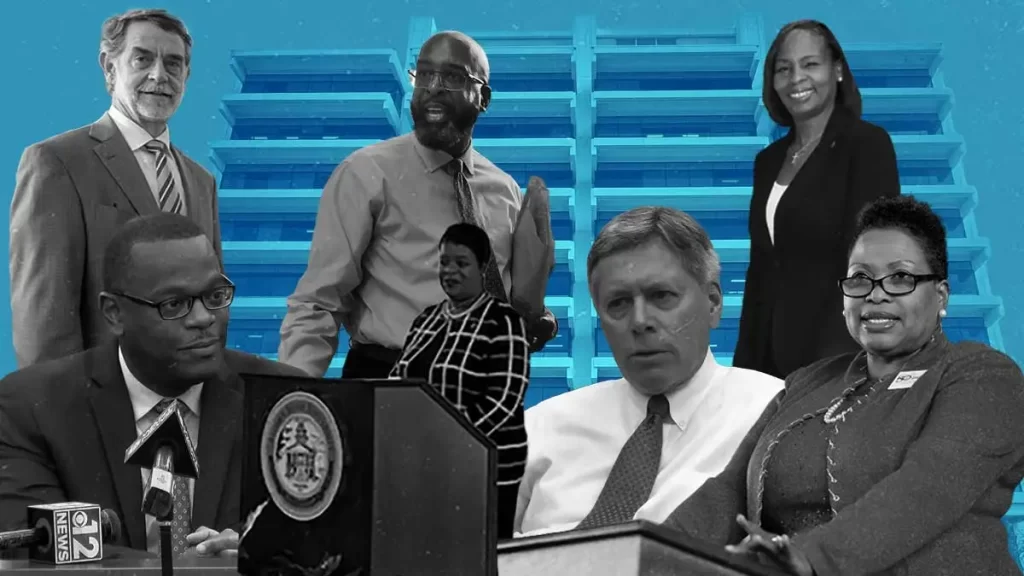
William LaForge — the former Delta State University president who was suddenly fired last summer — wants you to know this is not about “sour grapes.”
The regional public college he led for nine years in Cleveland, a small town in the Mississippi Delta, was losing students. There was a 27% decline in enrollment during the pandemic. He feuded with faculty. The school’s cash-on-hand, a financial health metric, was dwindling. And clashes with local donors over the golf course he closed sowed division.
LaForge concedes all of that. But if the Institutions of Higher Learning Board of Trustees had to fire him, he said there was a better way to do it.
Though the board gave LaForge a few weeks heads up it was considering parting ways, he says he did not learn he was officially fired until the commissioner, Alfred Rankins, called him on Monday, June 20, five minutes before a press release published announcing the decision.
“The way they did this gave Delta State an unnecessary black eye at a particularly vulnerable time,” he said. “I resent that.”
The stunning termination was the first in a series of presidential turnovers that have roiled colleges and universities in Mississippi over the last year. Weeks after LaForge was canned in 2022, Rodney Bennett, the president of the University of Southern Mississippi, stepped down in July — nearly a year before he said he would. Earlier this year, Thomas Hudson at Jackson State University resigned after the board placed him on administrative leave with pay. Then Felecia Nave was terminated from Alcorn State University.
All this has left students, faculty and staff and alumni wondering: Why is this happening? Mississippi Today spoke with more than a half-dozen former IHL board members, university administrators and faculty to understand the causes.
It’s unusual that LaForge — or for that matter, any president — was fired at all, some trustees said. Even presidents whose tenure ended in scandal have been allowed to step down. William Bynum Jr., the former Jackson State president who was arrested in a prostitution sting in 2020, resigned.
In a written statement to Mississippi Today, IHL acknowledged the board prefers presidents to resign.
“That is common among employers,” IHL wrote. “No one wants to have to terminate an employee.”
The board added it could not comment on LaForge’s specific personnel matter.
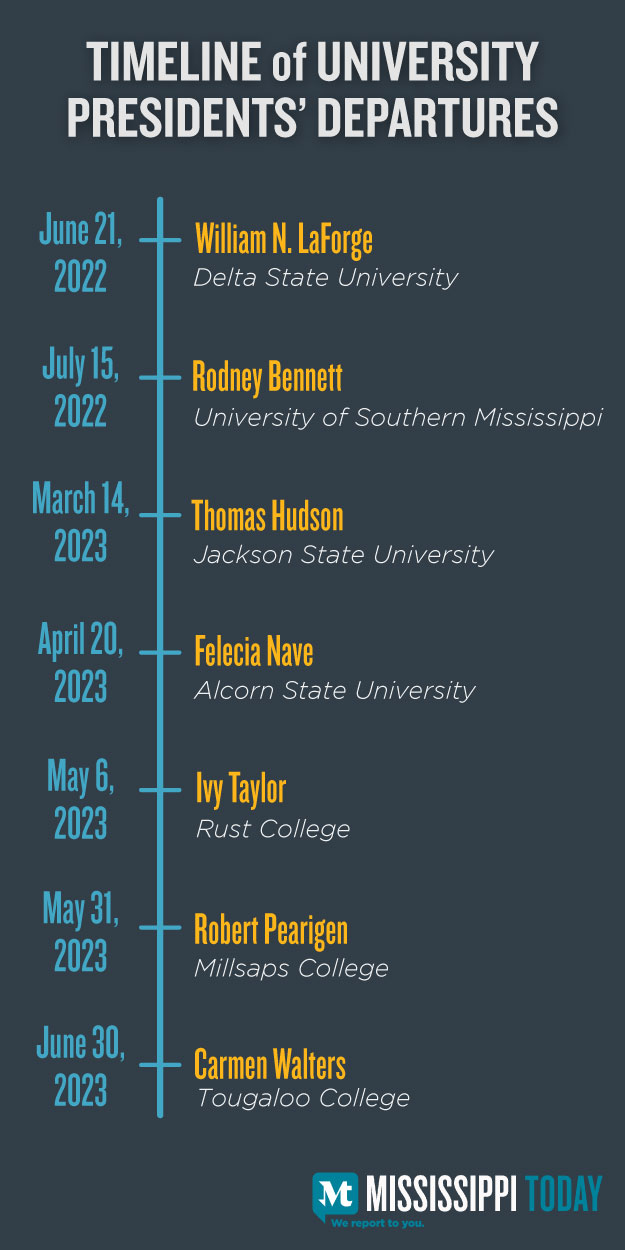
The state’s private colleges haven’t been immune from turnover either. Millsaps College, Rust College and Tougaloo College have all seen their presidents depart in the last six months. The latter two are both historically Black universities, which have been especially impacted by turnover.
“It puts the university in maintenance mode,” said Dan Durkin, a University of Mississippi professor and the president of the United Faculty Senate Association of Mississippi.
As far as LaForge knows, “there’s been nothing like this exodus in the near past, in my lifetime.”
He feels like his longer-than-average tenure has been overshadowed by its bitter end. Now, a year after he was fired, he has a warning for university presidents in Mississippi: “Watch your back.”
“Future presidents should know it’s not forever,” he told Mississippi Today in a phone call from Virginia, where he has retired. “And you should know it’s not on your terms.”
Skirting a unified theory of turnover, some trustees said there are likely as many reasons for the recent turnover as there are departed presidents.
Others said it’s more general than that. But everyone agreed the job is getting harder, especially for the presidents of the smaller institutions. Wooing private donors matters much more in a time of declining state appropriations. So does enrollment. The eight universities are vying for the same pool of high school graduates, and University of Mississippi and Mississippi State, with their deep pockets and big stadiums, can out-compete them all.
“Many factors make the role of university president a complex and challenging position,” IHL wrote in a statement to Mississippi Today.
Ford Dye, a surgeon who was appointed to the IHL board by former Gov. Phil Bryant in 2012, said that turnover isn’t just an IHL or Mississippi issue. It’s a national problem.
Research backs him up. Across the country, university presidents are serving shorter terms than ever. According to the latest survey by the American Council on Education, a typical university president has served for 5.9 years. A majority don’t think another five years is possible due to the pandemic and the politicization of higher education.
That holds true for Mississippi, former trustees said.
“I agree with that,” said Bill Crawford, who served on the board from 1992 to 2004, when asked if the job of a university president in Mississippi has gotten more political.“What hasn’t?”
Presidents must wrangle so many constituencies on campus that even if they aren’t fired, frustrated faculty or outspoken alumni could drive them to quit. For leaders of the HBCUs, this presents a particularly fraught dynamic. In his autobiography, John Peoples, the beloved former Jackson State president, described walking a fine line between pleasing the mainly white board and advocating for his school. Another long-serving Jackson State president, Ronald Mason, resigned in 2010 in part due to outcry that he supported an IHL-backed plan to merge the three HBCUs.
“Navigating competing priorities and demands is one of the reasons the job is so difficult,” IHL wrote.
The presidents who thrive in this environment, trustees said, are politically savvy.That’s why Mark Keenum, Mississippi State University’s president, has lasted so long. (For LaForge, this is particularly ironic, as just like Keenum, he got his start in Thad Cochran’s office.)
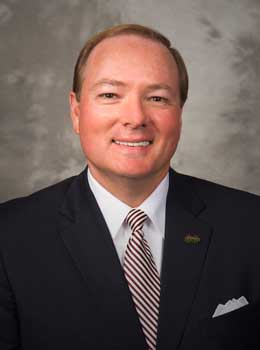
Keenum invites board members and lawmakers to sporting events and remembers the names of their family members, former trustees told Mississippi Today. His 14-year tenure as the president of Mississippi State University makes him the longest currently serving president and the exception to the rule.
“Mark is an intense listener,” said Sid Salter, Mississippi State’s director of public affairs. “He is, by nature, kind and thoughtful.”
Then there’s the view that the issue of turnover starts at the top — with the 12 trustees who are appointed by the governor to lead the system, a job that includes picking the university presidents.
“That is a matter of opinion,” IHL wrote. “Every personnel situation is different.”
That is also LaForge’s perspective.
He said his experience shows that when the going gets tough, this crop of IHL trustees lets the presidents go. Their four-year contracts are at-will. And the commissioner, Alfred Rankins, the presidents’ manager, is not standing up for them, LaForge said.
“I have grave concerns, and I know others do too, but they would never go public,” LaForge said. “Some of them are university heads.”
Past trustees were more understanding of the pressures that presidents face, he said.
Around the time he was appointed in 2013, LaForge spoke with Alan Perry, a trustee, and Hank Bounds, the then-commissioner. They warned LaForge that even though he should try to increase enrollment, it would be a serious challenge due to many factors, including the depopulation of the Delta.
“I took offense to that,” LaForge said.
But he said that they told him, “It’s not just you. It can’t be done. There are external factors beyond human capacity.”
Bounds told Mississippi Today he recalled the meeting.Perry wrote in an email that he did not remember this but in general had many discussions about the difficult task of increasing Delta State’s enrollment and thought LaForge was recalling those.
Nine years later, declining enrollment was one of the putative reasons for his firing, LaForge said. It is the number one metric on a list of 20 that university presidents are now graded on, according to the evaluation criteria obtained by Mississippi Today.
The IHL board, which can in nearly all cases hire or fire its eight university presidents at the whim of a majority vote, is a jumble of contradictions. It was created to be insulated from politics, but board members are political appointees. The board has been dogged by accusations of favoritism, but trustees are supposed to check their school colors at the door.
Some trustees like to say that “running a university is like running a city,” said C.D. Smith, an AT&T regional director who was appointed by Gov. Haley Barbour in 2008 and served until 2018.
Unlike a city, there is little democracy at the universities — and none at all within IHL.
The board knows that. Increasingly, Smith said, trustees think of the university presidents as CEOs who can be hired or fired “as the circumstances require.” The commissioner is a middle-manager who meets weekly with the presidents, who are his direct reports, and conducts their biennial performance reviews.
All this goes against the expectation many faculty have, which is of “shared governance,” a way of viewing the university as a partnership between students, faculty, staff and a transparent administration.
Trustees are aware of that too. When Crawford sat on the board, he said that any time a president had to be removed, trustees faced a tug-of-war between sharing just enough information to ameliorate upset alumni but not so much that it would denigrate a reputation — or lead to an employment lawsuit. He said the board also wants to make Mississippi a “congenial” place to be a college president.
“To the extent that you can comment, you offer a reason for making the change,” Crawford said. “But what you want to do is not harm somebody’s career by talking about those sorts of things which are personnel matters oftentimes.”
IHL wrote that the board “recognizes that all employees are entitled to confidentiality in personnel matters.”
In recent years, the board has said less and less, offering little-to-no information about its decisions and spurring calls for accountability from alumni, particularly from Alcorn State and Jackson State.
READ MORE: ‘Stop hiring your friends’: JSU community speaks up in listening session for next president
Just as trustees were not engaging with the community, it seemed to LaForge like they could do more to support the funding needs of each university.
The commissioner, legislative liaisons and lobbyists all advocate for funding during the legislative sessions, and IHL wrote that individual trustees “may, and do” advocate for the board’s requests.
But a few years after Rankins was appointed in 2018, LaForge recalled that he and some of the other presidents asked the commissioner if trustees could help lobby for more state funding at the Capitol, considering many of them donated to lawmakers. That could alleviate some of the pressure that presidents face to fundraise, he said.
The suggestion seemed to go nowhere, LaForge said.
On June 7 last year, LaForge said he received a personal visit from Rankins and IHL’s legal counsel. They met in the conference room in Kent Wyatt Hall. There, LaForge said the commissioner informed him that trustees were considering ending his contract at the upcoming board meeting on June 16 — news that LaForge recalled Rankins acknowledging was “a punch in the gut for you.”
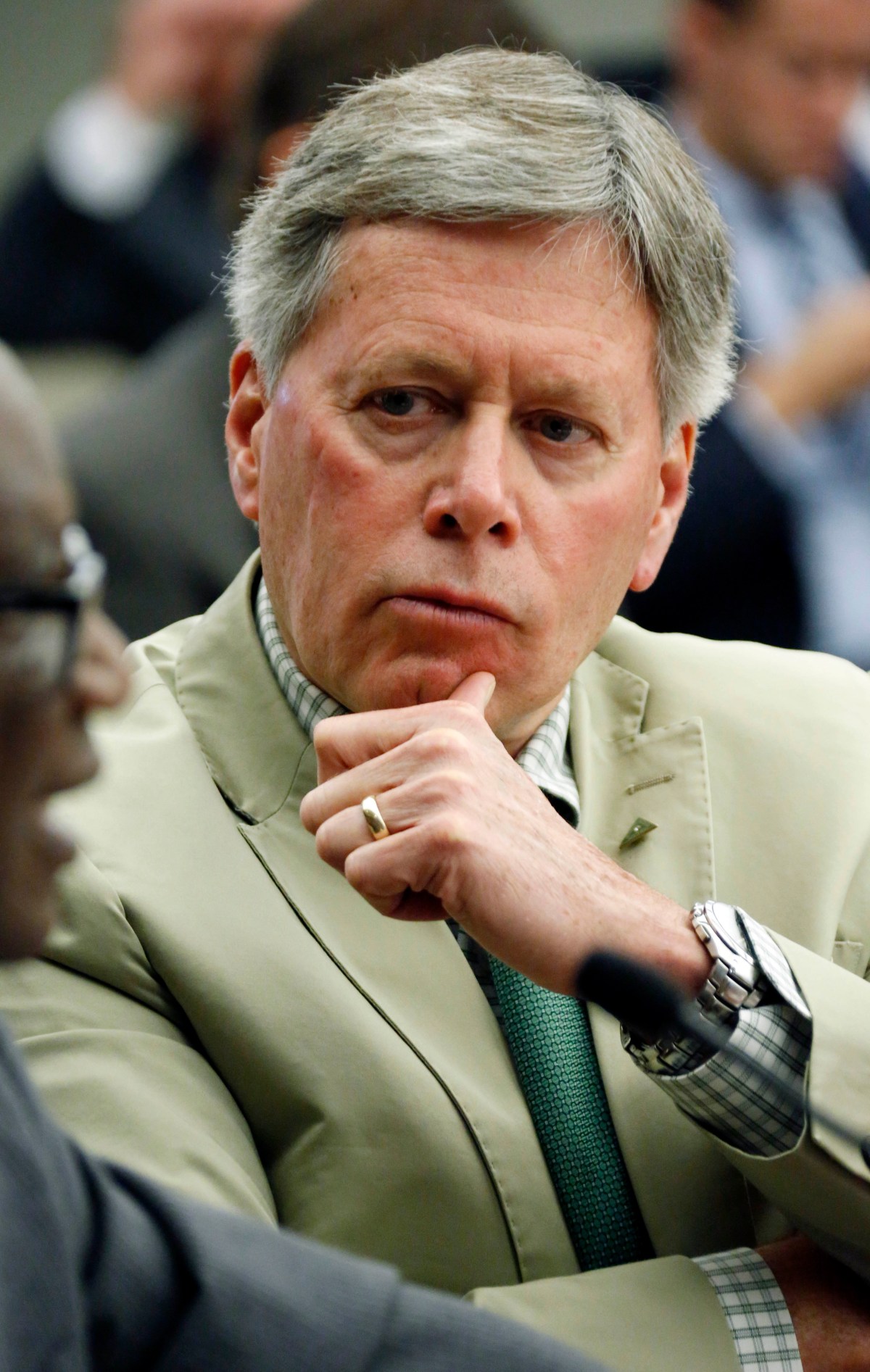
The commissioner offered LaForge several options to resign, including staying on at Delta State to research how to bring more students to campus or increase faculty retention — a proposal that LaForge considered “frankly garbage.”
“Why the hell would I stay around Cleveland on campus doing research when that’s supposed to be done by somebody else on my campus anyway,” LaForge said he thought at the time.
He rejected all the options to resign. Then he said he asked Rankins what advice the commissioner had given the board on whether to fire him. LaForge said Rankins told him he gave the board no advice.
“He is supposed to support his presidents, that’s part of his job,” LaForge said. “I didn’t get the feeling he did that (for me) and nor do others.”
In a statement to Mississippi Today responding to LaForge’s recollection of the June 7 visit, IHL said the commissioner does not make a “recommendation regarding continued employment” of a president when he presents performance reviews to the board.
In the IHL board room later that month, the vibe was “cordial but cold,” LaForge recalled. Sitting in front of the trustees during executive session, he made his case.
He wasn’t trying to save his job. He just wanted to stay at Delta State through the end of his contract in 2023 to “make it a smooth, orderly transition.” He said he thought that was the deal trustees had given Rodney Bennett, the then-president of USM, who was also appointed in 2013.
“That’s what you did for Rodney, at least do it for me,” he said he told the board.
Mississippi Today could not confirm any sort of “deal” took place and while many outlets, including this one, reported Bennett stepped down before he initially said he would, no articles detailed some sort of compromise between the former USM president and the IHL board.
Four days later, the termination letter came. It was labeled “personal and confidential” and signed by Rankins. It listed no reason for LaForge’s firing and noted he would be paid by the board through June 2023, the original end of his contract.
IHL meeting minutes show that in the same executive session, trustees also voted to terminate Bennett’s contract and name Joe Paul interim president at USM. IHL wrote that the termination of Bennett and LaForge’s contracts were unrelated.
Delta State had consistent leadership up until LaForge’s firing. Now he spends his time exercising, running errands for his kids and contemplating creating a Wikipedia page.
He said he wishes his successor, Daniel Ennis, well. But he worries for the future of the system. So do many students, faculty and alumni.
Take Jackson State University which, along with the two other public HBCUs, has had more presidential turnover in the last two decades than the predominantly white institutions. Its community has repeatedly asked the board to conduct a more transparent search.
But as Keenum’s success has shown, closed searches aren’t the be all, end all. He was confirmed following a search that was unusually secretive for its time.
The Legislature could make a change to the board, Crawford said, through the constitutional amendment process. Without a ballot initiative process, the public has no direct avenue to influence IHL. In a statement, IHL said the board “regularly listens to input and concerns from constituents and tries to be responsive within the parameters of its constitutional duty.”
But recent bills to dissolve IHL have failed. And lawmakers may not view turnover as IHL’s fault. Sen. Hillman Frazier, a Democrat who represents parts of Jackson, said at a listening session in April for the Jackson State presidential search that he has heard lawmakers cite the university’s turnover as a reason not to provide it with more funding.
Presidential turnover, LaForge said, is just like enrollment. The three largest and wealthiest universities in Mississippi will be just fine; if they wanted to buy the entire freshman class, LaForge said, they could do it, and leave the smaller schools scrambling.
“It’s just like how the rich get richer,” he said. “I’m not bemoaning it. It’s a fact.”
Editor’s note: Ivy Taylor, the former president of Rust College, is a member of Mississippi Today’s board of directors.
This article first appeared on Mississippi Today and is republished here under a Creative Commons license.
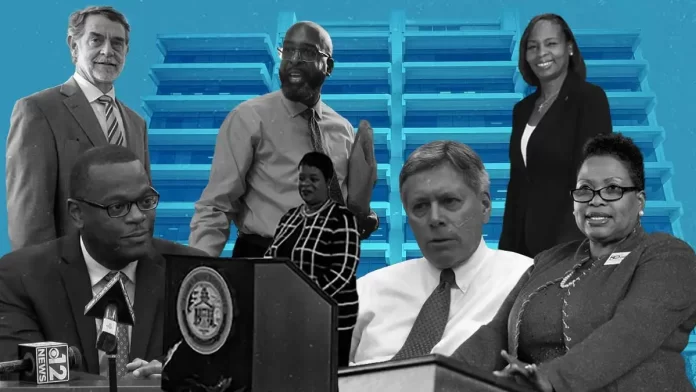
Recent Comments